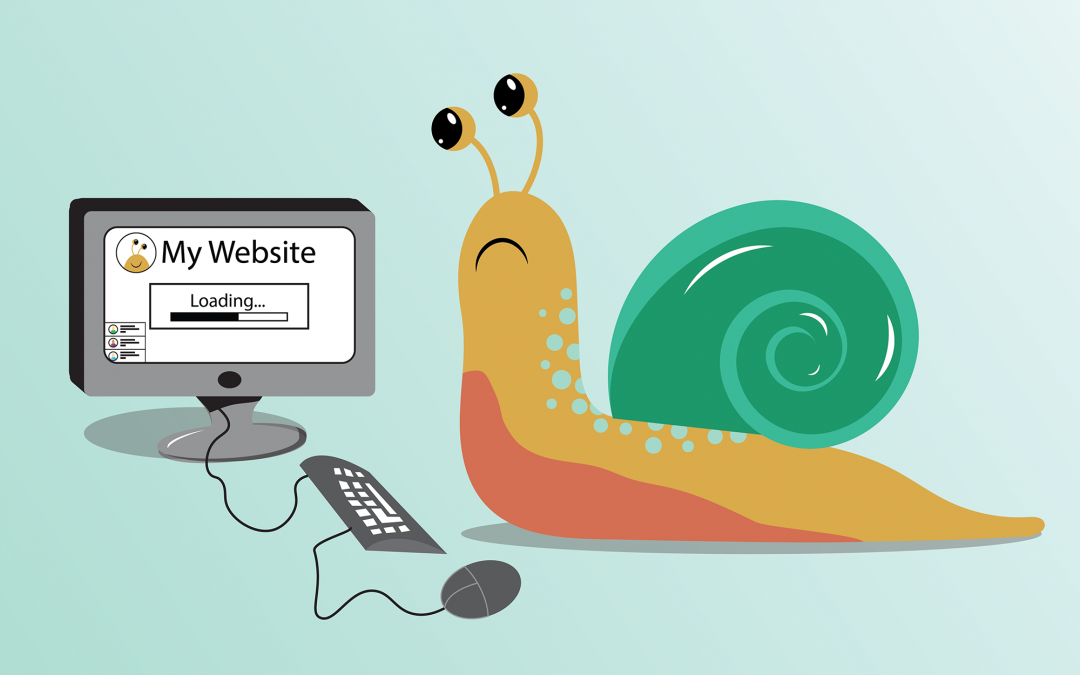When it comes to your business website, speed matters! Sites that take even a few seconds too long to load, will usually find that they see higher bounce rates and fewer conversions. Why, you ask? Humans are an impatient species, we don’t like waiting for anything, even less when it comes to browsing the internet.
Slow website loading speeds will lead to bad User Experience (UX) and even decreases in Google Search ranking, meaning that at some point your website may not get any impressions at all. To avoid this, our trusty Solutions Architects are ready to dive into your infrastructure and pinpoint the problems. Here are some common reasons why your website is loading slowly.
1. The Code is Messy
Without going into too much detail about JavaScript, CSS, HTML and all the various coding languages that make your website function and sparkle, it’s always important to do regular cleaning of your website’s back end (where the code lives).
It’s easy to get neglectful when constantly adding new content to websites. Every new bit of CSS to make a page pretty, all those plugins for the cool functions and social media feeds, those special offer pop-ups, each one of them needs to be kept up-to-date or removed once its job is done. If your CSS styles grow, combine them into one overarching CSS sheet, as opposed to having numerous ones linked to your site. If JavaScript is causing lag, defer it until after the site is visible. If the HTML is looking bulky, find ways to trim where you can, online tools like HTML Cleaner will help.
Keeping website code clean and up-to-date can be a daunting task for the untrained, that’s why our team of ARC Technology Solutions Architects are constantly attending workshops to stay in the loop of the latest methods and WordPress plugins to keep your site quick and UX smooth, leading to more conversions.
2. The Caching is Problematic
While cleaning up your code, ensure caching is enabled. In short, caching happens when a user visits your site for the first time. Static copies of your site are stored on their browser, so when they revisit your site, it can quickly display these copies instead of reloading the site. There are numerous plugins and third party services that can assist with your caching needs, the two more popular WordPress options are W3 Total Cache and WP Super Cache.
3. The Visuals are Not Compressed
When you need to display any photos, designs or videos, opt for smaller files sizes. Big file sizes will result in delayed web page loading. Luckily, you don’t need to be a graphic designer to compress visuals and videos to ensure they don’t impact your website speed. Use free online tools such as TinyJPG to resize images for your website, 1000 – 900 pixels wide is usually a good stopping point for most websites, as well as ensuring images are no bigger than 200kb each. Use YouTube to upload and host your high-res videos and simply embed them on your website, as opposed to hosting them uncompressed on your site which will load longer to view.
4. The Required Files are Missing
If you’re using pre-built WordPress themes, there are instances where not all files are loaded across. This will result in missing files or 404 errors if the related pages are viewed from the front end. These 404 errors are seen by Google and will negatively affect your rating. In other instances, site errors may occur and some content may be completely deleted, and in cases where it can be very tricky to locate the missing content, it may be more ideal to simply restore the site to the most recent backup where the error does not occur.
5. The Host is Horrible
In some cases, your website host can be the problem. We always recommend opting for a local and trusted host for your website, one with a good response rating when it comes to customer care. Hosts should always be accessible to offer advice on optimising your website for improved speed. If your website is slow and your host is not getting back to you with solutions, it may be time to switch to a new website host.
6. The User’s Connectivity is Faulty
If your code is clean, plugins are updated, visuals are properly sized, and your preview tests are running smoothly on your end, the problem may be on your visitor’s side. Unfortunately, you won’t be able to control and fix everything. Poor user internet connectivity can be caused by numerous reasons, such as bad weather, bandwidth caps and shared networks, distance from cell towers, even viewing numerous JavaScript-heavy websites at the same time.
Running a traceroute between your computer and your website to test connection speed can help detect whether or not the problem is related to your ISP or is a more significant site-wide concern. You can learn how to run a traceroute here on DreamHost’s knowledge base.
In conclusion…
When it comes to business success, making sales is what it’s all about. A slow website, especially a slow online store, will see very few sales. Not only that, but Google will penalise your site for not being user-friendly, resulting in a decrease in your Google Search Results Page ranking and under-performing Google Ads.
If you feel that your website is not loading as quick and smoothly as it should, contact us for a site diagnosis. Our team of experts will find the flaw and recommend the best solutions to get your website speed back into “cheetah mode”.

http://Www.webpagetest.org will help you find out why your website is slow and how to fix it.
Cloudflare.com can help too.